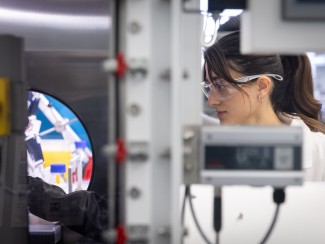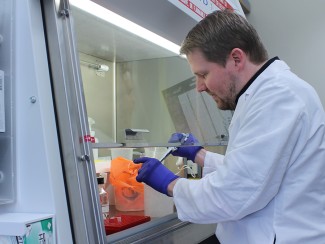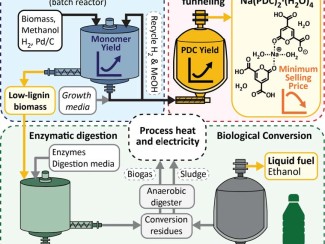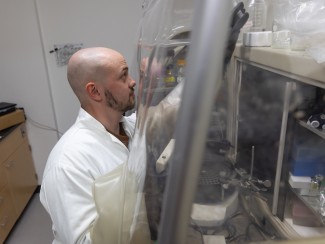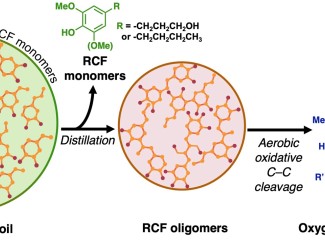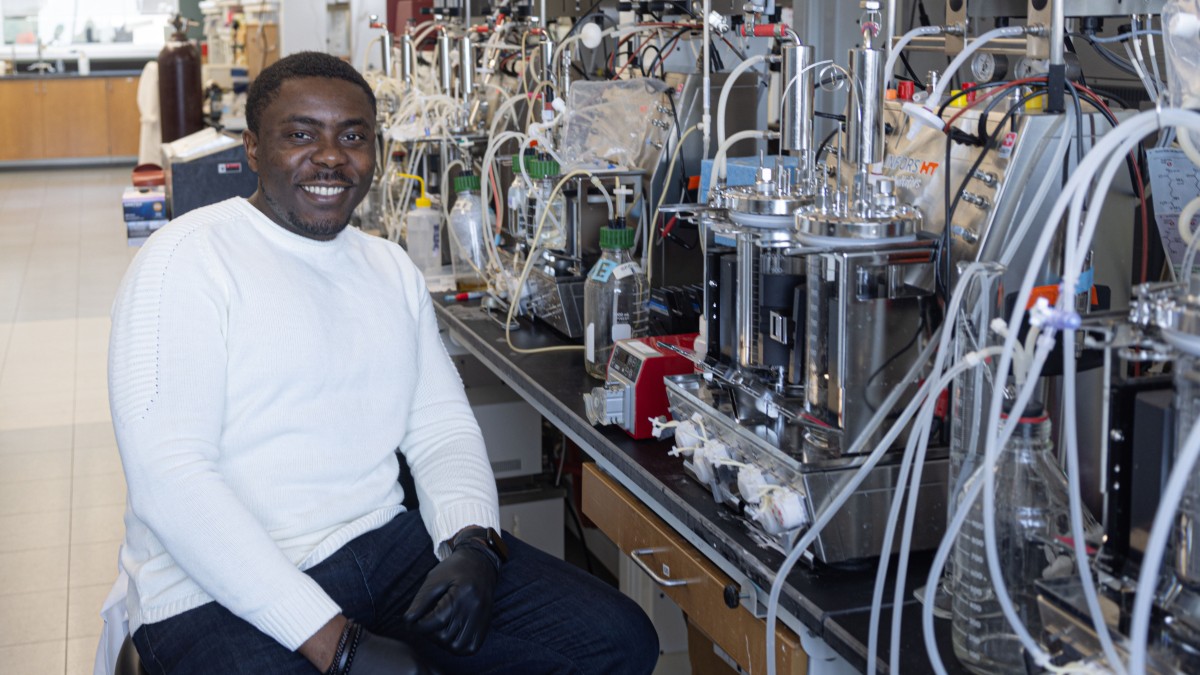
In this series, we learn more about what inspired our talented graduate students and postdoctoral researchers, what brought them to their field of study, and the questions that drive their work at the Great Lakes Bioenergy Research Center (GLBRC).
Today we spoke to Blaise Manga Enuh, a postdoctoral researcher in microbial genomics and systems biology the Noguera Lab led by Daniel Noguera at the University of Wisconsin-Madison. He earned a doctorate in biotechnology and biosafety at Eskişehir Osmangazi Üniversitesi in Turkey. He provides insight on the importance of his research, the role it plays in achieving the goals of the GLBRC, and what inspires his work.
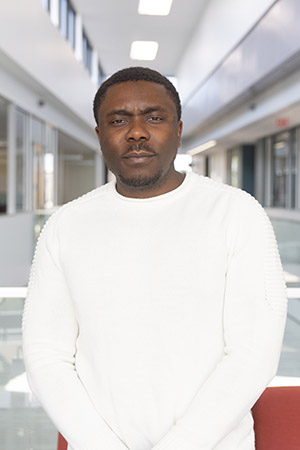
Tell me about your background:
I got my bachelor’s degree in microbiology with a minor medical laboratory technology in Cameroon. After that, I studied for my master’s in molecular biology in Cameroon as well. During that time, I got to do research in the field, in the lab, and analyzed data. I quickly found out that I was more passionate about combining programming and biological knowledge to answer research questions.
After that, I started looking for opportunities that enabled me to combine computational knowledge with the work I was doing. I got a Turkish government scholarship, went to Turkey for my PhD, and I got the opportunity to build skills in analyzing omics data (data about DNA sequences, proteins, metabolic pathways, molecules in an organisms) from extremophilic bacteria (bacteria that live in very harsh environments, like very high temperatures, or very salty environments where most bacteria are unable to live) and building genome-scale metabolic network models. These models are machine learning platforms that enabled us to explore several aspects of extremophile metabolism and uncover new microbial capabilities. We also provided these models to the research community for application in other research goals.
What sparked your passion for research?
During my undergrad we did some science projects, so my curiosity started there. Through our professors I began to gradually understand that research was one of those ways we could seek solutions to problems we face daily. The idea of identifying a problem, developing hypotheses, doing experiments and getting results that had real world applications got me more curious.
In addition to that, I always liked computers and stuff that has to do with technology but I had no idea then that both could be brought together. During my masters, I found out it was possible, it was a growing field with many opportunities to solve real world problems. I tried to figure out the kind of work that I could do that requires these skills and that's when I went to Turkey and started doing stuff like that. The idea of exploring new grounds and seeking knowledge that will contribute to solving important challenges helps to keep me focused and to always try to keep pushing those boundaries. I eventually chose something that I could focus on that I could spend nights and nights and nights working on without feeling bored in a way so this was it for me.
I eventually chose something that I could focus on that I could spend nights and nights and nights working on without feeling bored in a way so this was it for me.
Blaise Manga Enuh
Could you tell me a bit about your research?
In the lab, we are trying to use microbes to convert biomass to beneficial compounds such ethanol and others that are important in biomanufacturing. The process to get microbes to produce these compounds in good enough amounts such that their cost can compete with alternatives from petroleum products is a very challenging one. It follows an iterative method of designing, building, testing, and learning through trial and error that could take several years in some cases. That's where my research comes in. We think that it is possible to shorten this time significantly by using machine learning platforms called genome-scale metabolic network models. Think of these models like a virtual version of a microbe of interest built from all the knowledge scientists have accumulated over the years. We can use such models to understand at a deeper level the behavior of microbes and hopefully make accurate predictions about its behavior under different conditions. These predictions can help us narrow down the trial and error experiments to a few by shortening the period required for optimization. Using these models, completely new and unforeseen approaches can be developed as well.
What other projects are you working on?
I do a lot of genomic data analysis. Say we want to know what a bacteria is capable of or which bacteria are present in or perform what functions in a sample. We have to extract and sequence the genome. I look at those sequences to determine what kind of genes that bacteria has, and when we know these, we can predict what the bacteria does or is able to do. This then enables us to make informed decisions about what to do in line with our original research goals. One of the projects we are applying this on right now is with water treatment plants. We are trying to find new ways to treat wastewater at lower costs without compromising quality. To achieve this we want to know the kinds of bacteria that are involved in the biological treatment sections of wastewater treatment tanks, what they do and how we can play around with them to make treatment more effective.
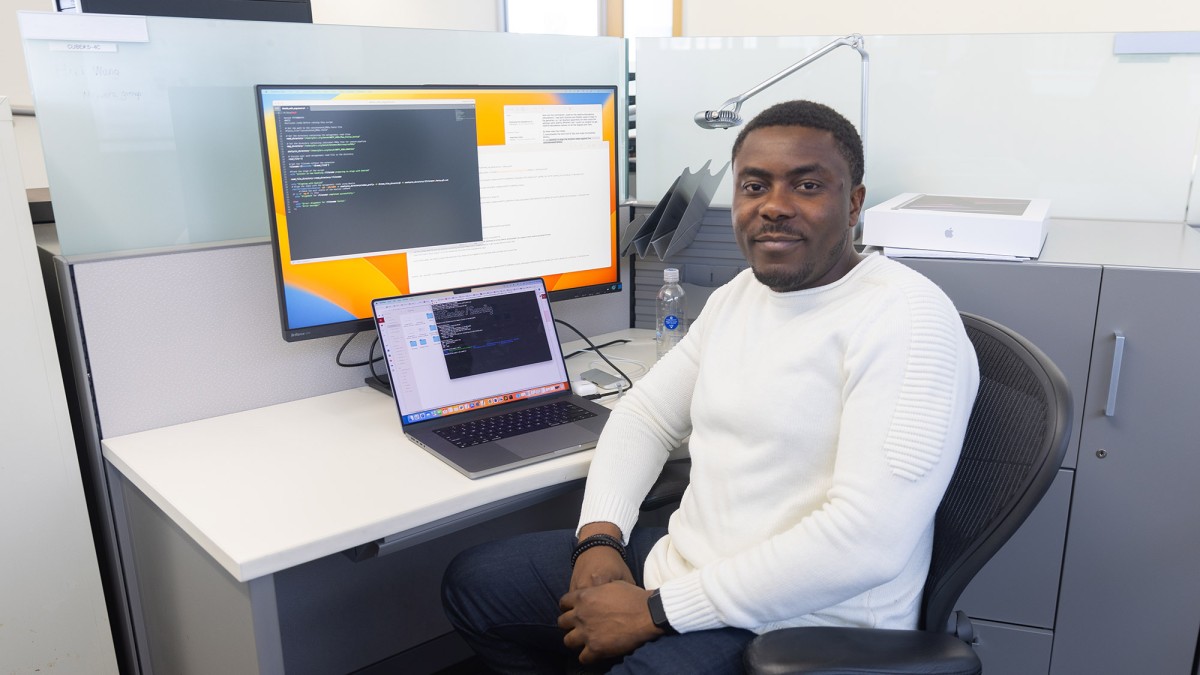
How did you become interested in science communication?
When I speak to my friends or people that I know, they want to know what I’m doing in the lab. I always found it difficult to explain to them in a simple and interesting way what I was doing, so now I’m really trying to use LinkedIn to start learning and writing the science we do in a way that people can understand and hopefully relate to. I think people really want to know what we do, but as scientists and experts it can be really difficult to explain what we do and their applications in an interesting way free of complex technical jargon.
It’s a way for me to start putting out the things that we do but in as simple a way as possible. Some of the articles are technical, but I try as much as possible to simplify and I've had a lot of people get engaged. So each week I try to come up with topics that other people are trying to learn more about and write about them.

What do you like to do for fun outside of research?
I like to draw. I do hyper-realistic pencil drawings. You try to draw with pencils a portrait as realistic as possible from a picture or from memory. It helps me get my mind off when things are just crazy, or when I hit a wall in my research. I also like watching science fiction movies, reading about other subjects unrelated to my field like psychology or just spending time with loved ones.
What aspects of your work spark joy?
I think I am a naturally curious person. My work gives me the opportunity to explore that fully. Those aha moments when a piece of code works, when I figure out how something works, building something new, exploring creation at an invisible level, and knowing that our work contributes to make earth a better place etc it kind of gives that fulfillment that keeps me coming for more each day.

